New Brexit food checks will test Britain’s supply chains
- Published
- comments
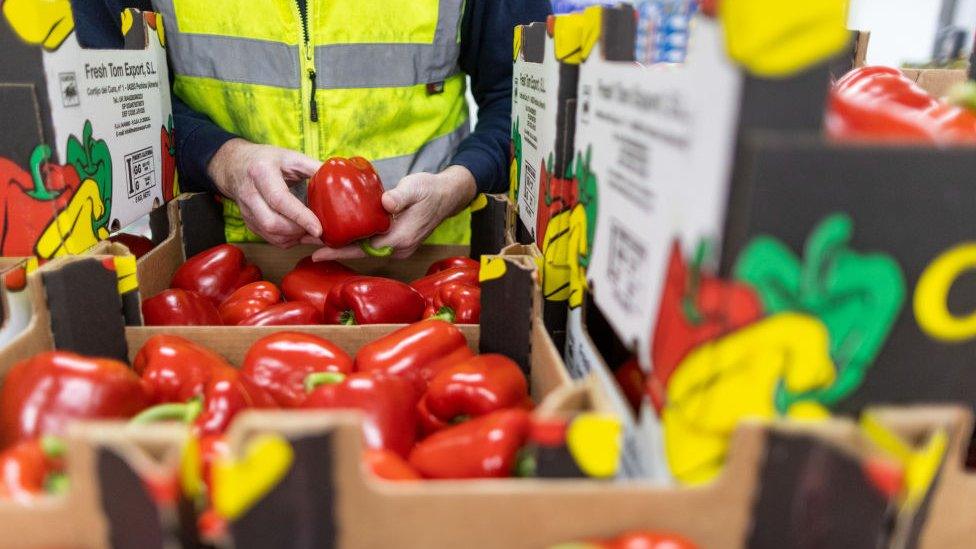
This time, the government are really going to do it. There is no going back. They are going to push the button on a new type of trade border coming into Britain from the continent.
In industry, it's being called Brexit 2.0. At least, that is the more polite version of the name for the imposition of a series of new post-Brexit requirements in Britain for food importers.
It is the final piece of the jigsaw puzzle of the changes necessary after the UK's exit from the EU's customs union and single market.
The most high-profile changes for food and plant product imports from the European Union start to be phased in on Wednesday, after a series of delays.
This will mean significantly extra red tape. In particular, an expensive veterinary certificate will be legally required with consignments of fresh food and plant imports from the EU. These are a requirement from 00:01 GMT on Wednesday, but will not be subject to actual checks at the border for another three months.
The government acknowledges that the extra red tape and checks will increase food prices, pushing up the overall level of prices by 0.2 percentage points over three years.
That means a notable impact on food inflation, but not a new food price shock of the kind seen after Russia's invasion of Ukraine. That increase was, nonetheless, sufficient for the cabinet to further delay the imposition of the checks last year, at a time when food inflation was rising at double-digit rates.
As Tom Southall, a director of the Cold Chain Federation, puts it: "There's never been a good time to do it, which is why it's been delayed five times."
The delays have led to two issues. There has been a lack of reciprocity. UK food and farm exports to the EU have required extra red tape, checks and delays for three years, but their competitors on the continent have enjoyed unfettered access to the UK. The farming industry has expressed concern for UK biosecurity, i.e. defending against the spread of plant and animal diseases, that could prove very costly.
But on Wednesday, four years on from Brexit day, the changes will start.
If things go according to the government's plan, the smooth and phased introduction of these new checks will protect UK biosecurity, have minimal impact on food availability and cost, and even provide an incentive for both the UK and EU to work together to lower these barriers.
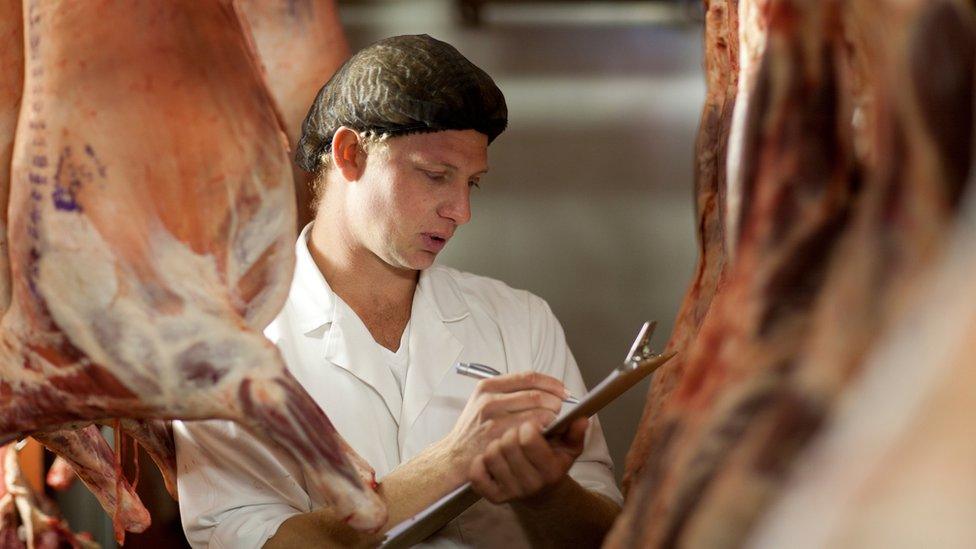
Various parts of the industry report a range of interrelated concerns painting a rather different picture: of rising costs, delays, and limited availability - especially of specialist food imports.
The specific question is whether a lack of knowledge of the British changes in individual EU nations and regions will combine with a shortages of vets, and lead to many smaller EU businesses giving up on supplying the UK.
The impact is most likely to be seen on deli counters rather than supermarket shelves. John Keefe, director at Getlink, operators of the Channel Tunnel, says: "The big unknowns are whether there are enough official vets across Europe to sign all the export health certificates. If there's not enough vets there will be a big problem as no certificate means no import."
Most of the detractors fear that the changes will be a costly and problematic irritant to certain specialist suppliers, rather than a wider problem.
The introduction of these checks since December 2020 in the other direction (into the EU from Britain) has led to the need for 852,165 export health certificates issued by British vets, or 1.7 million hours of veterinary time, billed at £100 per hour. That is according to the Chilled Food Association, which has to extract the numbers from the government through a monthly freedom of information request. It told the government that the industry already had to generate £8.5bn in extra sales to cover the £170m cost of GB-to-EU veterinary certification.
The UK imports more food than it exports, so expect these numbers to be exceeded with these new requirements.
Karin Goodburn of the Chilled Food Association also chairs the SPS Certification Working Group. Her big fear is that 24/7, 365-days-a-week food supply chains simply do not work when you have to wait for vets to sign off certificates and then give 24 hours notice of imports. "It could stop those supply chains, or at least press the pause button," she says.
Last week, she wrote, external to Agriculture Secretary Steve Barclay about wide-ranging concerns about the preparedness of the site in Kent that is meant to host the checks on cross-Channel imports.
There is amazement that the government has not yet set the charge for every consignment to pay for these checks. Clarity on whether the charge will be closer to £10 or £43 per consignment will come in the next few weeks, the government says.
Above all, EU official vets are unlikely to be available through the day, night and weekend to sign off perishable exports to the UK. And all of this is made more complex by the requirement to give one day's pre-notification of imports. That is a large proportion of best before dates on these sorts of goods.
"We've lost a day. That's 20% of the shelf life and the products aren't really saleable," Ms Goodburn says.
Add all of this together and you have a severe stress test of a cross-continental food supply chain designed to deliver safe, highly perishable foodstuffs, just in time. On top of that, much of the more exotic imports - such as cocoa or bananas - comes via shipping into EU hubs such as Rotterdam.
The system of export health checks was really designed for long-distance transport of shelf-stable food products in container ships. There is a risk that the system does not function when applied to what was a frictionless, free-flowing trade of perishable goods. These intricate and elaborate supply chains into the UK have never been tested in this way.
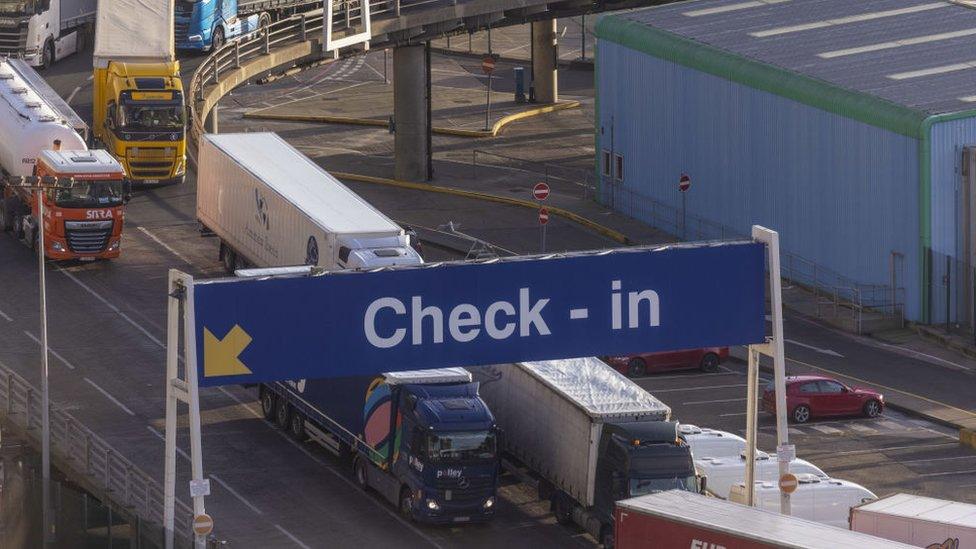
While the phased introduction of controls should limit visible disruption, freight organisations have told MPs about their concerns for significant issues in the autumn, when the EU is also expected to change its border arrangements for individuals. Kent County Council is preparing a reasonable worst-case scenario of 14-hour waits when EU Entry and Exit checks and visa waiver requirements start.
"The combination of both these schemes, coming into effect in 2024, could cause significant delay and disruption to UK-EU supply chains," freight trade body Logistics UK told the Commons European Scrutiny Committee last week.
"Logistics UK members are also concerned that EES (Entry-Exit System) and the BTOM (Border Target Operating Mode - the government's plans for importing goods into Britain) is highly likely to lead to driver shortages to cover European work, which in turn would cause costs to rise with potential inflationary impact."
While these concerns have been expressed before, there is now a critical difference. This is one area of post-Brexit policy where the opposition has been willing openly to challenge the government.
Labour proposes a veterinary agreement with the EU that could lessen the requirement for border checks on health certificates, or even eliminate the need for them entirely. The challenge is that lower friction and disruption will also require closer alignment to EU food safety rules on gene editing and fertilisers. It is unclear where exactly Labour want to land on the trade-off between frictionless food trade and regulatory freedom.
So, in less than 24 hours, an experiment starts. Can the UK's pan-European food supply chains function effectively within a burdensome system of certification and checks? And what if industry is right that maximum disruption will occur this autumn, around the expected time of the general election? The last piece of the Brexit jigsaw could be its most consequential.
Related topics
- Published26 January 2024
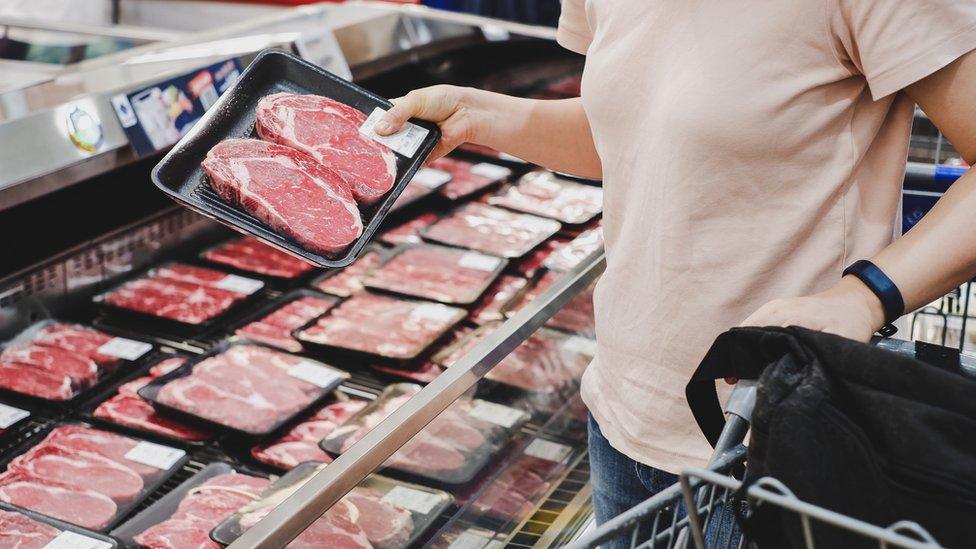
- Published25 January 2024
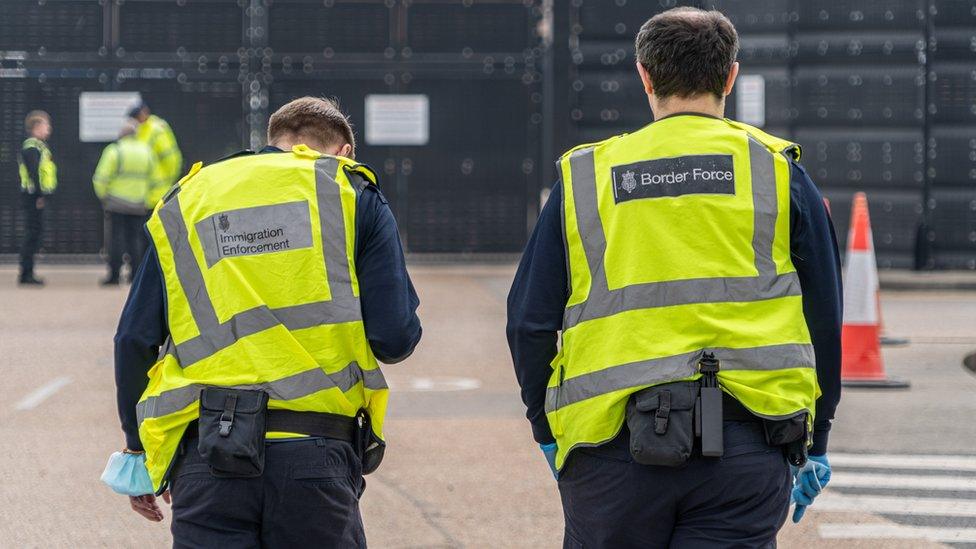
- Published21 December 2023
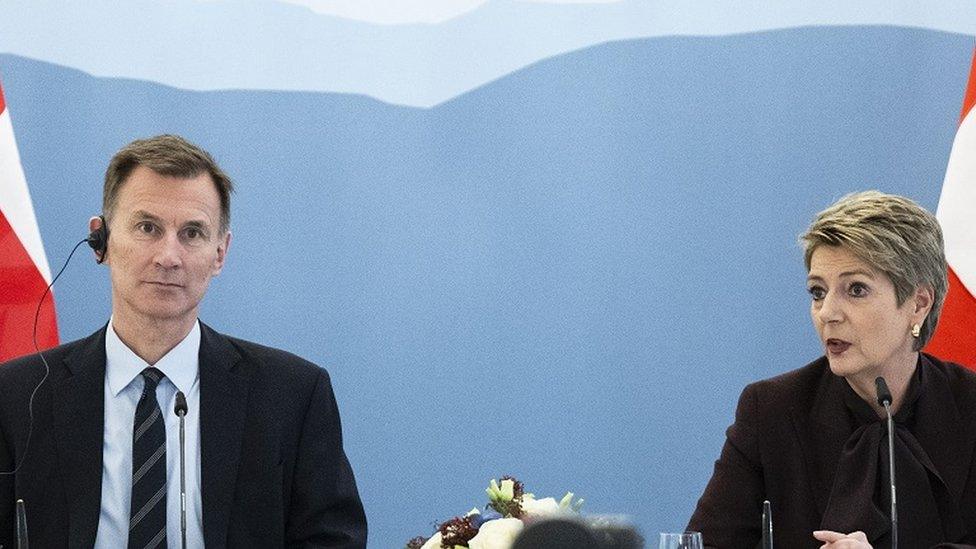
- Published26 January 2024

